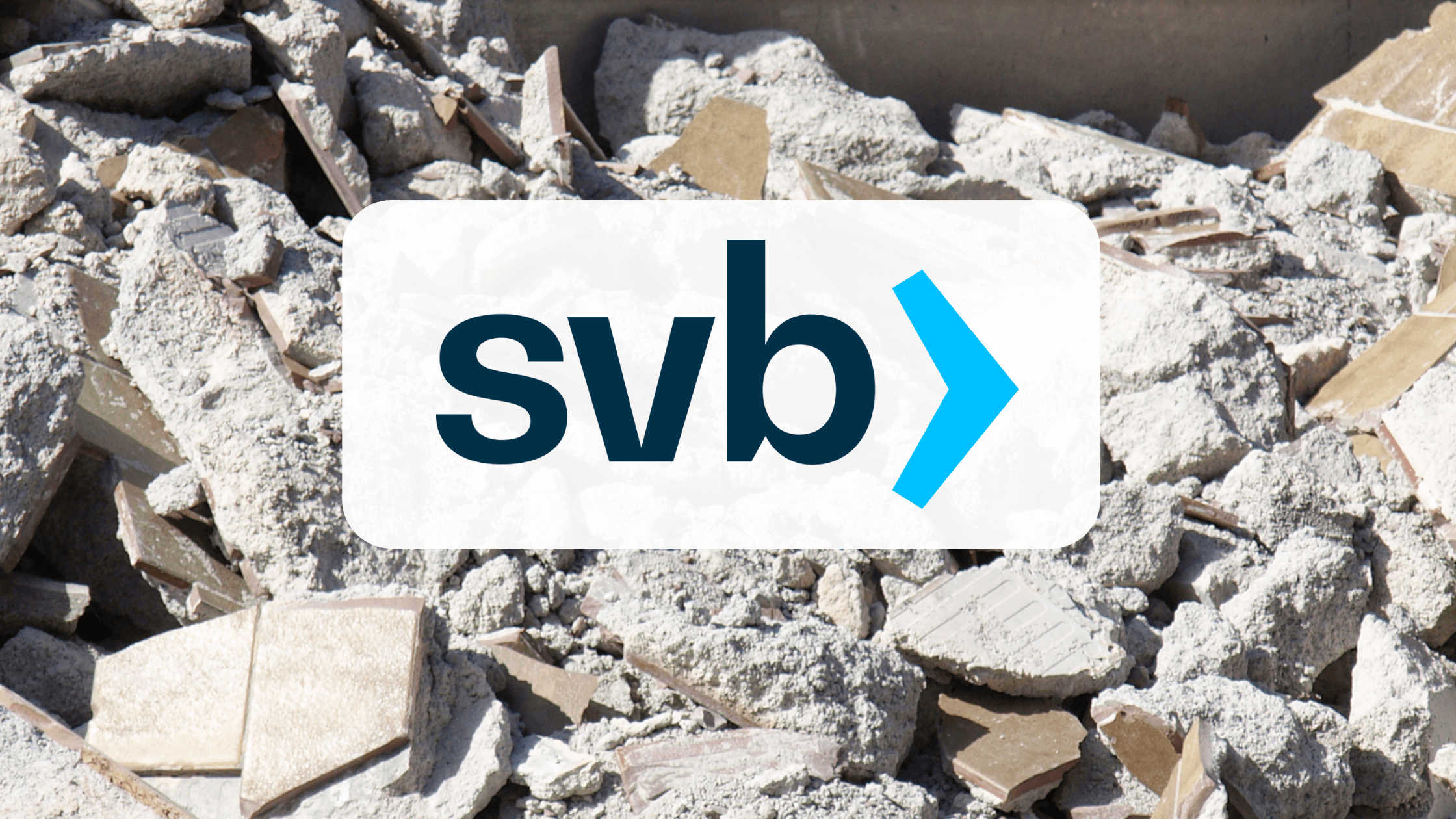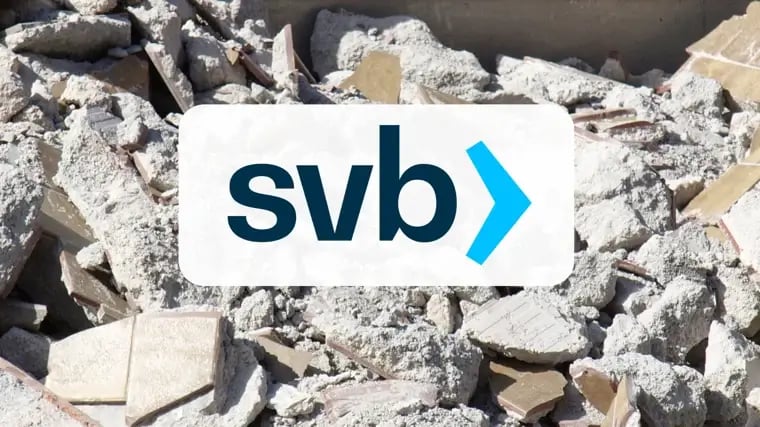
Opinion: The days of money-losing tech startups getting funded because VCs liked their founder is over — for now
 The founder-friendly model of venture capital is reaching its end after the end of a long tech boom and the sudden collapse of the industry’s favorite bank, but could the hype around artificial intelligence make it just a short pause?The implosion of Silicon Valley Bank arrived as venture-capital investors faced pressure from both sides — it is harder to raise funds and more startups are desperate for capital. The end result will be VCs with access to actual capital dictating tougher terms to startups. MARKETWATCH PHOTO ILLUSTRATION/ISTOCKPHOTO
The founder-friendly model of venture capital is reaching its end after the end of a long tech boom and the sudden collapse of the industry’s favorite bank, but could the hype around artificial intelligence make it just a short pause?The implosion of Silicon Valley Bank arrived as venture-capital investors faced pressure from both sides — it is harder to raise funds and more startups are desperate for capital. The end result will be VCs with access to actual capital dictating tougher terms to startups. MARKETWATCH PHOTO ILLUSTRATION/ISTOCKPHOTO
The founder-friendly model of venture capital is reaching its end after the end of a long tech boom and the sudden collapse of the industry’s favorite bank, but could the hype around artificial intelligence make it just a short pause?
For more than a decade in Silicon Valley, ambitious tech entrepreneurs have received billions from a flush venture-capital community to fund companies, many with questionable economics and a culture of “moving fast and breaking things.”
But now that the tech boom has ended, exacerbated by the swift demise of Silicon Valley Bank, that era is done.
“The East Coast terms start creeping into term sheets that add structure into finance that is not founder-friendly,” said Duncan Davidson, a general partner at Bullpen Capital. “Traditionally the West Coast is more founder-friendly, the East Coast thinks more like bankers.”
Even before the digital bank run that led to the sudden collapse and FDIC takeover of Silicon Valley Bank, the number of venture-capital deals investing in startups was falling. In 2022, for example, venture funding in the U.S. fell 31% to $238.3 billon, down from $344.7 billion, a peak, in 2021. Davidson noted that late-stage funding had already dropped and mid-stage companies were getting smaller rounds.
In a fourth-quarter 2022 survey, called the Silicon Valley Venture Capitalist Confidence Index from the University of San Francisco, the mood was already darker, with many talking about company valuation resets. One high-profile example of a valuation reset was seen just this month in the recent venture funding round at fintech company Stripe, which saw its valuation plunge nearly 50% in its latest funding round to $50 billion.
Safa Rashtchy, a managing director of Think + Ventures, which focuses on early stage companies, said in the survey that he has observed a “disillusionment with tech and Silicon Valley’s innovations not solving real problems,” and “overly cautious VCs reacting to the macro-environment and new interest-rate trends.”
“I do believe we will see more stringent terms from VCs,” said Jennifer Palmer, founder and CEO of the Palmer Collective, an asset-based lending firm. “We will see higher hurdles. We will see VCs do more due diligence. VCs are tired of unrealistic hockey-stick projections.”
Over the past two years or so, Palmer said, venture capitalists have been treading lightly when it came to interfering with how entrepreneurs have been running their companies. “I think that what we will see is there will be a new meaning to the term ‘founder-friendly.’ They will want to be supportive, but VCs will be more proactive, looking for problems, taking action….As liquidity becomes more scarce, they will have more power and be more involved in monitoring their risk.”
Venture capitalists are often known for investing in clusters in certain areas of technology, and have often been derided as lemmings. In the 10 to 12 years, they have invested as a pack in a range of technologies, ranging from consumer on-demand apps that became companies like Uber Technologies UBER, -0.73% and Instacart, to more services in the cloud, or to help its developers code, to an overabundance of healthcare or financial tech apps.
“A lot of technologies that have been invested in by these VCs are not new, and don’t provide any advantage,” said Jeffrey Funk, an independent technology consultant, who also co-wrote an op-ed for MarketWatch on this topic. “Some just have a lousy business.”
He noted that the lengthy time period for companies to go public has been another huge factor, citing a recent CB Insights Unicorn Tracker, there were approximately 1,207 privately held startups valued at over $1 billion each — the so called unicorns — with a combined valuation of $3.79 trillion.
“We know those valuations are wrong, because public valuations have dropped,” Funk said.
Indeed, one of those many startups valued at $1 billion-plus is Flow, a nebulous-sounding residential real estate startup founded by Adam Neumann, the infamous former CEO of WeWork, who was asked by its board to step down from the co-working company as it was preparing to go public. The Wall Street Journal reported that Neumann cashed out more than $700 million through stock sales and debt of the company before the planned WeWork IPO, among his other shenanigans.
The business model for WeWork WE was also growth at all costs, as it expanded relentlessly in markets around the globe, and its first withdrawn IPO was derided for its inability to even be close to profitability and was often referred to by its detractors as a Ponzi scheme. In 2021, it managed to go public, via a SPAC called BowX Acquisition Corp., and last week, it was saved from near bankruptcy by its forever savior, SoftBank Group 9984, -2.20%, in a complex recapitalization plan.
After raising more than $20 billion in total, WeWork is currently valued at less than $700 million on the open market. Yet venture capital investors are still tossing money at Neumann for his new startup, at least until the bottom fell out this year.
“Blitz scaling is the idea of growing at all costs, as fast as possible,” said Fred Schonenberg, founder of VentureFuel, which helps corporations partner with startups. “That really got legs with companies like Uber, so a lot of startups got the idea we have to scale as fast as possible and that is how we are going to win. Most markets are not winner-take-all, it’s not necessarily about speed, but about business fundamentals. I think there is a recalibration happening now, how can I scale a real business that has real returns and profits and fundamentals and can get really big?”
The purchase of most of the assets of Silicon Valley Bank by First Citizens Bank FCNCA, +5.51% is unlikely to change the doom and gloom for startups, with more uncertainty ahead. While Silicon Valley Bank, which was founded in 1984, was seen as an entrepreneur-friendly bank, in recent years, more of its loans were to the VC firms. In 2022, over 50% of its loans went to venture-capital firms and private equity, who would also vouch for their startup company investments, while only about one-fifth of its loans went directly to startups, according to its 2022 financials.
“It is imperative that former SVB clients begin to look to refinance their line of credit (LOC) if they haven’t begun to do so already,” Palmer said. “Even if FCB absorbs certain loans to VCs, it is unclear if they will stay in these facilities.”
Davidson of Bullpen Capital said one thing he has been seeing is the rise of participatory preferred offerings, which disguises a down round by providing a special dividend that is paid before other common stockholders. and take precedence in the event of a liquidation.
“You see more of that coming in,” he said. “For founders, it protects their valuation and it protects the VC. Even though people call it East Coast terms it solves the problem. It’s a solution to a difficult challenge.”
PitchBook is seeing that trend, discussed in its recent first-quarter report, Quantitative Respectives, as well as a cumulative dividends, that accrue at a fixed rate or can be payable when determined by a company’s board. But it also advises founders to be wary of these tougher terms on their returns and the returns of previous investors.
Just as Sequoia Capital advised startup companies in past downturns to cut costs — especially in the infamous “RIP Good Times” presentation in 2008, which featured a tombstone and advised entrepreneurs to “manage what you can control” — the firm last June warned young companies of a “Crucible Moment” of challenges and opportunities, in a presentation called “Adapting to Endure.”
“Capital was free. Now it’s expensive,” was one key point in the 56-page presentation. The “focus is shifting to companies with profitability,” and in a take on Darwin’s survival of the fittest, Sequoia said companies that move the quickest (to make cuts) “have the most runway and are most likely to avoid the death spiral.”
And there will be a death spiral, for companies that cannot adapt or change from their big-spending ways.
“I have told my limited partners that this downturn would not be as bad as 2000 but maybe something like it was in ’08, and then things will start to start up again,” Davidson said. “That is my own view. It’s somewhere between an ’08 and a 2000 fiasco. I don’t think venture is over.” He said the promise of many new artificial-intelligence startups and the focus on consumers going to space gives him hope.
“If it turns out that AI will be the next iPhone, that’s maybe three years out,” he said. “The answer is not to look at patterns, but to look at the fundamentals. We need some great new inventions, like a microprocessor or an iPhone to drive the next boom…I don’t think there will be a 10-year dry spell, because AI or space will drive a new boom time.”
As Kyle Sanford, a senior analyst at PitchBook recently told MarketWatch, the venture business is going through “a necessary correction.” And a shakeout and return to rationality in the fantasyland of startups has been a long time coming. But if, for example, a technology like generative AI turns out to be useful and lucrative, and proves out the current hype in the next few years, the cycle could easily happen again.
